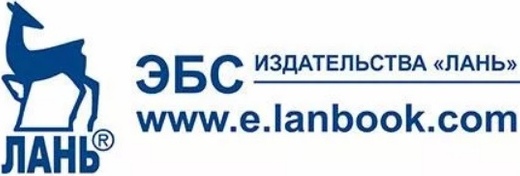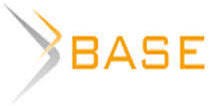DEVELOPMENT OF THE RUSSIAN INSURANCE MARKET UNDER THE CONDITIONS OF SANCTIONS
Abstract
In this article, the subject of study is the Russian insurance market. Unfortunately, the US and EU countries continue to pursue a policy of sanctions against other countries: Iran, Syria, North Korea, Venezuela, etc. This list includes Russia. Over the past 8 years, a record number of sanctions have been introduced against Russia. The purpose of this article is to systematize the imposed sanctions against the insurance sector of the financial market and assess their impact. The article assesses the dynamics of the impact of sanctions on the Russian insurance market, such factors as: withdrawal of large reinsurers; closure of the skies of Europe, the USA and Canada; sanctions against the banking sector; disconnection from the SWIFT service, restriction of foreign exchange transactions; withdrawal of foreign IT companies from Russia; withdrawal of auto brands from the market. The increased risks of the insurer's activity in the current conditions are determined. On the basis of the study, the author made the relevant conclusions and offers recommendations for stabilizing the insurance market.
Introduction
Russia has been going through a period of political and economic Western sanctions pressure over the past eight years, which will go down in domestic history. The outcome of the political and economic confrontation between Russia and the West will determine the place and role of Russia for the next decades. Sanctions are an instrument of foreign policy. Unfortunately, they are increasingly being used by Western countries and international organizations, making it easier and cheaper for them to achieve their goals than effective diplomatic relations.
Economic, trade and personal sanctions have been imposed against Russia. The purpose of the imposed sanctions is to restrain the development of Russia. In response to these restrictive political and economic measures, Russia applies special economic measures within the framework of the law of the Russian Federation [1]. Economic sanctions are defined as “deliberate government-initiated withdrawal or threat of withdrawal from normal trade or financial relationships” [Hufbauer G.C., Schott J.J., Elliott K.A., Oegg B., 2017].
Many scientists deal with the issue of sanctions [Belozerov S.A., Sokolovskaya E.V., 2022], [Grinberg R.S., Belozerov S.A., Sokolovskaya E.V., 2021], [Evsin M.Yu., 2022], et al. The authors explore economic sanctions and their impact on the Russian insurance market [Timofeev I. N., 2021], [Sharifyanova Z.F., Saetova E.R., 2016]. In the periodical literature there are works, whose authors consider insurance as a method of risk management, as well as in modern conditions, identify problems and prospects of development of the risk insurance system [Oleivi Kh.Z., Vaganova O.V., Melnikova N.S., Bykanova N.I., 2021], [Pashkova E.N., 2021].
The chosen research topic is relevant, since in this situation there is an urgent need to study the consequences and evaluate the effectiveness of economic sanctions, to determine the methods of systematic analysis. Regarding the insurance sector, it should be noted that some of the sanctions imposed are directly aimed at blocking Russian organizations and interests from accessing global insurance markets.
The purpose of the study is to systematize the sanctions imposed on the financial market and assess their impact on the insurance sector.
The main research methods are the analysis and synthesis of open sources of information by comparing statistical data for previous periods.
Main part
Let us consider the development of the insurance market in the context of sanctions from 2014 to 2022. In 2014, with the Crimea’s reunification with Russia and the conflict in eastern Ukraine, a new package of sanctions against Russia was put forward, which led to a crisis in the domestic financial market. The market saw a sharp decline in world prices for oil, on the export of which the revenue part of the Russian budget largely depends. This phenomenon weakened the Russian ruble against foreign currencies. [Russian Federation Staff Report, 2019].
In the insurance sector, one way of overcoming the situation was the formation of captive insurers in the banking sector, which were created to manage bank risks through insurance. These insurance companies are IC Sberbank Life Insurance LLC IC VTB Insurance LLC, AlfaStrakhovanie PLC, VSK Insurance House (CJSC “VSK”), etc. Thus, banks began to cooperate more often with insurance companies, to insure bank risks and risks of clients.
The increasing globalization of financial markets has led to an increase in joint activities between insurance companies and commercial banks, which is based on more efficient use of infrastructure and the network of sales of insurance products, through a banking window. In 2014, the share of bancassurance amounted to 11.2% of the entire insurance market, in 2021 it has increased to 42.9% (Figure). During this period, against the background of sagging loans, integrated insurance products (endowment and investment life insurance) became the drivers for attracting funds from the population [Overview of key…, 2014], [Overview of key…, 2016], [Overview of key…, 2021].
Many insurers are part of banking groups that are now under sanctions. Domestic insurance groups were largely present on the European market. The imposed sanctions have only reduced the operations of Russian insurers abroad, which may lead to solvency problems in the long term.
Financially stable insurance companies are needed to insure bank risks. Therefore, the Bank of Russia during this period tightened the requirements for insurance companies, which should have increased the financial stability and solvency of companies, as well as strengthened the competitiveness of insurers in the financial market. Not all insurance companies were able to meet the requirements of the regulator. Insurance market entities (activities subject to licensing) decreased over the period under study.
Таблица 1
Количество субъектов страхового рынка
Table 1
Number of insurance market entities
Quantity | Sanctions period | ||||
2014 | 2016 | 2018 | 2020 | 2021 | |
insurance market entities (activities subject to licensing), including | 567 | 423 | 255 | 232 | 219 |
insurance companies | 404 | 283 | 178 | 160 | 144 |
mutual insurance societies | 12 | 12 | 66 | 59 | 59 |
insurance brokers | 151 | 128 | 11 | 13 | 16 |
During the study period, participants in the insurance market have to work in conditions of increased risk of carrying out insurance activities both on the part of insurers and on the part of policyholders.
During the period under study, the sanctions pressure is growing both in quantitative and qualitative directions.
Quantitative impacts include those changes in the insurance market that are caused by price shocks in goods and services directly or indirectly related to insurance.
During the study period, the number of contracts increased by 54.4% and in 2021 amounted to more than 2 million rubles. Increased volume of collected premiums reached 1808289 million rubles. Despite the growth in the number of concluded contracts, the risk of liability of insurers increased, payments under insurance contracts increased by 13 times (Table 2) [Overview of key…, 2014], [Overview of key…, 2016], [Overview of key…, 2021].
In the insurance market, the manifestation of risks is increasing in its various sectors. Let us name the increased risks of the insurer in his insurance activities, which are the risk of liability for the carriage of goods, the risk of liability for insurance of property of legal entities, the risk of liability of air carriers, the risk of a decrease in activity in the mortgage insurance market, the risk of an increase in the cost of casco aircraft insurance, the risk of the cost of a CTP policy due to the cost of vehicle components, decrease in incomes of the population, as well as the general aging of the vehicle fleet. These lines of insurance are now in the niche of the most vulnerable.
Let us consider the sanctions pressure in its qualitative direction. A feature of the set of economic sanctions in 2022 is the speed of their introduction and, in fact, the daily change in the number of sanctions objects (Table 2).
The unprecedented and illegal restrictions imposed by the United States Government on Russia had been supported by the European Union, Japan, United Kingdom and a number of other foreign countries. In general, Western sanctions are aimed at the financial, energy and transport industries, the supply of goods, technology and equipment, and the supply of visa-related goods and equipment (Table. 3).
Таблица 2
Показатели деятельности страховщиков за 2014 – 2021 годы
Table 2
Performance indicators of insurers for 2014 – 2021
Indicator | Unit of measure | 2014 | 2016 | 2019 | 2020 | 2021 |
The number of insurance contracts concluded | pcs. | 156864489 | 167797165 | 208109759 | 175104790 | 242239790 |
Insurance premiums, including by types of insurance | million rubles | 988000 | 1181000 | 1481178 | 1538701 | 1808289 |
Insurance payments, including by types of insurance | million rubles | 58000 | 131000 | 610865 | 658485 | 796973 |
Average insurance premium, including by types of insurance | thousand rubles | 6.9 | 7.0 | 7.1 | 8.8 | 7.5 |
Average insurance payment, including by types of insurance | thousand rubles | 11.3 | 12.7 | 12.8 | 13.2 | 13.9 |
Loss ratio | % | 47.8 | 47.6 | 41.2 | 42.8 | 44.1 |
Таблица 3
Санкции, повышенные риски страховщика и мероприятия по их преодолению
настраховомрынкеРоссии
Table 3
Sanctions, increased risks of the insurer and measures to overcome them
in the insurance market of Russia
No. | Sanctions | Increased insurer risks | Measures |
|---|---|---|---|
1 | Large reinsurers leaving the Russian market. | Carriage of goods liability risk. Corporate property insurance liability risk of. | Reorientation of the domestic reinsurance market. Further development of Russian National Reinsurance Company (RNRC). Cooperation with friendly countries. |
2 | Europe, the United States and Canada closing their skies. | Air carrier liability risk. | Increasing the vehicle fleet due to domestic technology. Support for domestic aircraft leasing. |
3 | Sanctions against the banking sector. Disconnection from the SWIFT service. | Risk of decline in mortgage insurance market activity. Rising bank risks. | Timely regulation of the key rate by the Bank of Russia. Use of FPS with friendly countries. Using the Russian national payment system MIR. |
4 | Restrictions on foreign exchange transactions. | Inncreased costs of insurance business. Delays in receiving payments and blocking transactions on financial instruments transactions in Euroclear and Clearstream. | Review of investment activities of insurers. Heading to the Middle East and Asian markets. |
5 | Foreign IT-companies leaving the Russian market. | Growth of cyber risks. Rise in price and shortage of IT-equipment and its tech. support. | Strengthening the IT team. Reorientation to Russian software. State support. |
6 | Car brands leaving the Russian market. | Risk of an increase in the cost of casco aircraft insurance. Risk of the cost of a CTP policy due to the cost of vehicle components, decrease in incomes of the population, as well as the general aging of the vehicle fleet | Support of domestic automaker. Cooperation with friendly countries and implementation of joint projects. Increasing the income level of the population. |
* compiled by author
Large reinsurers leaving the Russian market. Reinsurance is a guarantee of the financial stability of the insurer. It is the activity of insuring by one insurer (reinsurer) the property interests of another insurer. This type of activity is allocated to a separate branch of insurance. For reinsurance in Russia, casco aircraft insurance, liability insurance, compulsory civil liability insurance of carriers, financial risks, property of legal entities are in demand.
In the international reinsurance insurance market, the Munich Reinsurance Company (Munich Re), the German reinsurance group Hannover Re, the London Insurance Market (London Marine Insurance Market), the Swiss reinsurance companies Zurich and Swiss Re have ceased to cooperate with Russia.
The largest insurance companies in Europe also cease their operation in Russia, for example, the German insurance company Allianz, the Italian company Assicurazioni Generali [Litova E. Sheludchenko S., 2022].
The largest insurers Allianz and Zurich have subsidiaries in Russia. Allianz, a shareholder of the ROSNO Group, sold a 50.1% stake in its Russian company Interholding LLC in June 2022. Generali froze its assets in shares in Ingosstrakh. This is 40% of all company assets.
London Marine Insurance Market is a vital part of the financial services industry both in the UK and worldwide. It remains the world's largest reinsurance center, an attractive location for significant growth in the number of insurance-related insurers in Bermuda. [Horton A., Moore M., 2020]. This market has declared all sea waters of the Russian Federation a “military zone”. It included not only the Sea of Azov and the Black Sea, but also the Baltic Sea, as well as the entire water area of the Russian Far East. The presence of a ship in this territory increases the risk, which is reflected in the cost of the marine insurance premium. Thus, for foreign ships with goods, being in Russian territorial waters becomes unprofitable. This measure can reduce the export of agricultural products from Russia by about a third.
Ban on Aeroflot flights from and to Russia. Recall of leased Boeing and Airbus aircraft and denial of their maintenance, suspension of airworthiness certificates of airliners of Russian companies. The sanctions imposed by the UK and related to the restriction of the provision of insurance and reinsurance services for Russian companies in the aviation and space industry will also constrain the development of reinsurance.
Sanctions against the banking sector. Several large Russian banks have been disconnected from the SWIFT interbank payment system, the activities of the MasterCard and Visa payment systems have been suspended on the territory of the Russian Federation. The assets of the Central Bank of the Russian Federation placed abroad have been frozen, because of which Russia technically have lost the ability to pay off non-residents, the assets of Russian banks and companies. Many foreign companies have left Russia, investments, supplies of products and equipment have been stopped. Disconnection of Russian banks from the international financial information exchange service SWIFT. The service allowed to transfer currency to foreign banks in automatic mode. The ability of insurers to collect premiums and pay claims through these banks has become impossible. This circumstance has also affected the sphere of commercial credit insurance. Insurers have to provide insurance coverage for the risk of non-payment to sanctioned companies and enterprises that sell goods and services on credit, which has increased the loss ratio of insurers.
Two international central depositories of the European Union (Euroclear and Clearstream), due to sanctions against Russia, have suspended foreign exchange transactions. This will affect the receipt of coupons and dividends by investors with Eurobonds and foreign shares. This circumstance will affect the investment activities of insurers, namely, delays in receiving payments and blocking operations on transactions with financial instruments. Moreover, Russian insurance companies used to conduct underwriting business through international brokers. for example, the insurance company SOGAZ, the leader in obligatory reinsurance, cooperated with Munich Re. Alfastrakhovanie is the leader of the contract for reinsurance of fire risks of property of legal entities, cooperated with Munich Re, Swiss Re, Hannover Re, Cologne reinsurance company GenRe.
For the development of the insurance market in the context of digitalization, it is important to use new digital technology. Foreign IT-companies have left the Russian market., which will entail a significant increase in the cost and shortage of IT equipment, the lack of spare parts for it on sale, the closure of access to a number of services and databases, as well as the growth of cyber risks for foreign software and equipment, for whose technical support has been suspended as a result of sanctions [Lyubarskaya O., Shkreba A., Yanin A., 2022].
Problems related to auto insurance, which have arisen due to the suspension of the work of many international automotive concerns in the Russian Federation, a drop in sales of new cars, a reduction in lending, disruption of supply chains, rising prices for cars and vehicle components, as well as their deficiency. Popular car brands have left Russia one by one: Mercedes-Benz, Ford, Nissan, Toyota [Raspopova A., 2022]. Most of all, this circumstance affects the casco insurance of vehicles. Rising prices for auto parts will increase the cost of repairing cars and CTP policies.
Conclusion
The domestic reinsurance market needs a serious reorientation. One of the measures to concentrate reinsurance in the domestic market was taken by the Bank of Russia. In 2016, the Bank of Russia created RNRC [Reinsurance…, 2022]. Russian National Reinsurance Company, the purpose of which is the formation of reinsurance protection against sanctions risks, as well as maintaining the stability of the domestic reinsurance market. Negotiations are currently underway with market participants and RNRC and its shareholders on the maximum possible reinsurance of risks under contracts, the risks of which were previously placed on the international insurance market [Litova E. Sheludchenko S., 2022]. For the further development of the reinsurance market, reorientation of the domestic reinsurance market, further development of the RNRC, and cooperation with friendly countries are needed.
2. Domestic aviation needs state support. Russia needs to use this opportunity to use it for positive purposes. To increase the fleet of vehicles at the expense of domestic equipment. Launch a new program to support the leasing of domestic aircraft. The measures taken will significantly reduce the risks of aircraft casco insurance, especially those leased by Western companies.
3. Overcoming the risk of a decrease in activity in the mortgage insurance market is directly related to the development of the banking sector in the face of sanctions. The Bank of Russia regularly takes stabilizing measures against sanctions pressure. Some of them are the timely regulation of the key rate by the Bank of Russia, the use of the FPS with friendly countries, as well as the Russian national payment system MIR. Under these conditions, insurance is one of the risk management methods not only for the bank itself, but also for its clients.
4. Restriction on foreign exchange transactions. This sanction most of all affects the foreign economic relations and investment activities of the insurer. In this situation, insurers need to reconsider their international and investment activities and choose a course of development in the Middle East and Asian markets.
5. In connection with the departure of foreign IT companies from Russia, insurers need to revise their investment policy considering new requirements and realities, strengthen IT teams, and reorient themselves to Russian software. Today there is an opportunity to implement digital transformation in the Russian market, and domestically developed software will be in demand within the country.
6. The auto insurance market directly depends on the development of the automotive market itself. Therefore, the fact that major partners left the Russian car market had a negative impact on the insurance market as well. Insurance of motor vehicles as property and liability insurance of motor vehicle owners are among the priority sectors of insurance. To overcome this situation, following measures are needed. They are the support of the domestic automaker by the state and the population, cooperation with friendly countries, and the search for import substitution. Dependence on the dynamics of sales of new cars and the dynamics of household incomes remains the main factor of restraining the market.
Thus, today Russia remains under sanctions pressure. They affect business relations with foreign partners and contractors, hinder access to foreign insurance markets and capital, individual goods, services and technologies. During this period, the insurance market needs government support. The main task is to form a new reinsurance market in Russia. In the current situation, it is possible to note timeliness of the Russian Government's response to economic shocks and the adoption of stabilizing measures, as well as the consideration of a promising course towards the Middle East and Asian markets.

















Reference lists
1. On special economic measures and coercive measures of December 30, 2006 № 281-FZ (last edition) [Electronic resource] // Reference legal system Consultant plus URL: http://www.consultant.ru/document/cons_doc_LAW_ 64883/3815d45b5fb660887f504b447582fc8b30ffcf17/?ysclid=latjq9j978965784568
2. Belozerov S.A., Sokolovskaya E.V., 2022. Economic sanctions and their impact on the Russian insurance market // Modern model of the insurance market development: priorities and opportunities: Proceedings of XXIII Intern. scientific-practical. conf. (St. Petersburg, June 1, 2022). / ed. S.A. Belozerova, E.V. Zlobina. – St. Petersburg: Publishing House of St. Petersburg. University 2022: 127-133.
3. Grinberg R.S., Belozerov S.A., Sokolovskaya E.V., 2021. Evaluation of the effectiveness of economic sanctions. Possibilities of systematic analysis // Economics of the region. 2021: Vol. 17, no. 2. 354-374.
4. Evsin M.Yu., 2022. Assessment of the impact of sanctions on the Russian financial market // EFO: Economics. Finance. Society. 2022: #2. 14-21.
5. Oleivi Kh.Z., Vaganova O.V., Melnikova N.S., Bykanova N.I., 2021. Problems and prospects for the development of the banking risk insurance system // Financial business. 2021: No. 8 (218). 61-66.
6. Pashkova E.N., 2021. Theoretical foundations of personal insurance // Vector of Economics. 2021: No. 9 (63).
7. Pashkova E.N., 2021. Property insurance: practical aspects // Vector of the economy. 2021: No. 9 (63).
8. Timofeev, I. N., 2021. Sanctions Against Russia: A View in 2021: Report 65/2021 // Russian International Affairs Council (RIAC). – M.: NP RIAC. 2021: 24.
9. Sharifyanova Z. F., Saetova E. R., 2016. Impact of sanctions on the Russian insurance market // Innovative science. 2016: no. 2-2 (14). 88-90.
10. Overview of key performance indicators of insurers in 2014 // Information and analytical material. Bank of Russia, Moscow. 2014: 40.
11. Overview of key performance indicators of insurers in 2016 // Information and analytical material, Moscow. 2016: 41.
12. Litova E. Sheludchenko S., 2022. The Russian insurance market lacks capacity [Electronic resource] // Vedomosti. Finance. 2022. URL: https://www.vedomosti.ru/finance/articles/2022/03/16/913840-strahovomu-rinku-moschnostei?ysclid=lb0iifuhzq279378986 (Accessed 15 November 2022)
13. Lyubarskaya O., Shkreba A., Yanin A., 2022. Six blows to the Russian insurance market: from protection to development [Electronic resource] // Analytical review. 2022. URL: https://raexpert.ru/docbank/954/ed2/485/ 660f17aaf547c3fca4c77fe.PDF (Accessed 15 November 2022)
14. Raspopova A., 2022. Which auto brands have left Russia, who is trying to stay [Electronic resource] // Autonews. 2022. URL: https://www.autonews.ru/news/635a91d89a79472435712a8f?ysclid=lb0n2fbtde807217103 (Accessed 15 November 2022)
15. Reinsurance – an Achilles' heel for Russian insurers after the introduction of sanctions [Electronic resource] // Review. Interfax. Economy. 2022 URL: https://www.interfax.ru/business/825514
16. Hufbauer G.C., Schott J.J., Elliott K.A., Oegg B., 2017. Economic Sanctions Reconsidered. 3rd ed. Washington, DC: Peterson Institute for International Economics. 2017: 248
17. Russian Federation Staff Report, 2019 [Electronic resource] // International Monetary Fund European Department. International Monetary Fund. 2019 URL: https://www.imf.or g/en/Publications/CR/Issues/2019/08/01/Russian-Federation-2019-Article-IV-Consultation-Press-Release-Staff-Report-48549 (Accessed 15 November 2022)
18. Horton A., Moore M., 2020. London-Matters-2020-Digital [Electronic resource] URL: https://docs.yandex.ru/docs/view?tm=1669560673&tld=en&lang= en&name=London-Matters -2020-Digital-1.pdf (Accessed 15 November 2022)
19. L. A. Talimova, N. K. Kuchukova, A. A. Gukovskaya, E. V. Chernikina, S. V. Shmanev, N. R. Gainullina, D. E. Morkovkin, and V. N. Nezamaikin, Osipovskaya A.V., Arkhipova N.I., Sedova O.L., Zbirovskaya E.P., Vinogradova E.K., Kisarov I.V., Tishin I.V., Dolgov Ya.V., Khotinskaya G.I., Likhacheva O.N., Setchenkova L.A., Sanginova L.D. and others. Formation of a financial and credit model in the context of the development of digitalization and integration of the economies of the EAEU countries. Karaganda, 2021. EDN: YHCQAS
20. Vaganova O.V., Bykanova N.I., Strizhakova A.A., Evdokimov D.V. 2021. Impact of non-financial business of Sberbank PJSC on the development of its ecosystem. Financial business. 6 (216): 231-235.
21. Vaganova O.V., Bykanova N.I., Gordya D.V., Golubotskikh V.N. Development of the open banking system in Russia. Modern economics: problems and solutions. 2022; 1(145):27–37. EDN: PLBQTN. https://doi. org/10.17308/meps.2022.1/2752 (In Russ.)
22. Fliginskikh T.N., Vaganova O.V., Solovjeva N.E. 2022.Features of the formation of an ecosystem through the development of modern banking technologies in Russia / Journal of Applied Research. 2(7): 121-127(in Russian).
23. Vaganova O.V., Fliginskikh T.N., Konshina L.A. 2021. Modern approach to the study of the digital transformation of the financial sector of the Russian Federation // Economic and humanitarian sciences, 6 (353): 37-49 (in Russian).